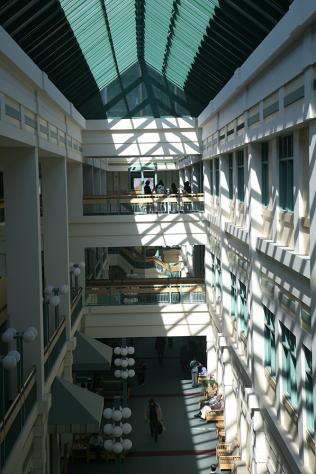- For candidates without other fellowship training, a two-year fellowship program leading to board eligibility in the subspecialty of critical care medicine from the American Board of Internal Medicine (ABIM).
- For candidates who have completed two years of fellowship training in a subspecialty of internal medicine there is a one-year fellowship program that leads to board eligibility in the subspecialty of critical care medicine from the ABIM.
(Note: There is a separate combined program for pulmonary and critical care medicine. Individuals who are interested should visit the Pulmonary and Critical Care Fellowship site.)
Our goal is to train intensivists who are capable of providing exceptional, state-of-the-art care to critically ill and injured patients across the full spectrum of critical care environments. We believe that the best way to achieve this goal is to provide our fellows with a highly-integrated multi-disciplinary training experience. Our rotations afford fellows an opportunity to be directly involved in the assessment and management of patients in our Medical ICU, Surgical ICU, Neuro-Critical Care Unit, and Cardiovascular Critical Care Unit while working closely with faculty intensivists from Internal Medicine, Emergency Medicine, Anesthesia, Surgery, Neurology, and Neurosurgery.
During these rotations, our fellows are also expected to work with faculty to become experts in airway management, diagnostic and procedural-based ultrasonography, central line placement, arterial line placement, bronchoscopy, and chest tube placement. They are also expected to work with our colleagues in Palliative Medicine to master skills in complex communication with patients and their families.
Our program is also closely integrated with other training programs, most notably our Anesthesia-Critical Care and Pulmonary-Critical Care fellowship programs. These programs share a didactic conference series and a common rotation and call schedule. This integration allows our fellows to work alongside peers from other medical backgrounds, further enriching their educational experience. Our fellows also supervise and teach residents from multiple residency programs and students from the Geisel School of Medicine, giving them an opportunity to refine their skills as bedside and small-group educators.
We are proud of our program and our history of success training outstanding clinician-educators. We also feel fortunate that we have the chance to train fellows in a beautiful part of the country that provides the opportunity to find work-life balance in a true community atmosphere.
